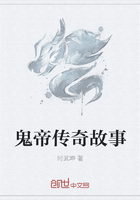On the vexed question of Shakespear's social standing Mr Harris says that Shakespear "had not had the advantage of a middle-class training." I suggest that Shakespear missed this questionable advantage, not because he was socially too low to have attained to it, but because he conceived himself as belonging to the upper class from which our public school boys are now drawn. Let Mr Harris survey for a moment the field of contemporary journalism. He will see there some men who have the very characteristics from which he infers that Shakespear was at a social disadvantage through his lack of middle-class training. They are rowdy, ill-mannered, abusive, mischievous, fond of quoting obscene schoolboy anecdotes, adepts in that sort of blackmail which consists in mercilessly libelling and insulting every writer whose opinions are sufficiently heterodox to make it almost impossible for him to risk perhaps five years of a slender income by an appeal to a prejudiced orthodox jury; and they see nothing in all this cruel blackguardism but an uproariously jolly rag, although they are by no means without genuine literary ability, a love of letters, and even some artistic conscience. But he will find not one of the models of his type (I say nothing of mere imitators of it) below the rank that looks at the middle class, not humbly and enviously from below, but insolently from above. Mr Harris himself notes Shakespear's contempt for the tradesman and mechanic, and his incorrigible addiction to smutty jokes. He does us the public service of sweeping away the familiar plea of the Bardolatrous ignoramus, that Shakespear's coarseness was part of the manners of his time, putting his pen with precision on the one name, Spenser, that is necessary to expose such a libel on Elizabethan decency. There was nothing whatever to prevent Shakespear from being as decent as More was before him, or Bunyan after him, and as self-respecting as Raleigh or Sidney, except the tradition of his class, in which education or statesmanship may no doubt be acquired by those who have a turn for them, but in which insolence, derision, profligacy, obscene jesting, debt contracting, and rowdy mischievousness, give continual scandal to the pious, serious, industrious, solvent bourgeois. No other class is infatuated enough to believe that gentlemen are born and not made by a very elaborate process of culture. Even kings are taught and coached and drilled from their earliest boyhood to play their part. But the man of family (I am convinced that Shakespear took that view of himself) will plunge into society without a lesson in table manners, into politics without a lesson in history, into the city without a lesson in business, and into the army without a lesson in honor.
It has been said, with the object of proving Shakespear a laborer, that he could hardly write his name. Why? Because he "had not the advantage of a middle-class training." Shakespear himself tells us, through Hamlet, that gentlemen purposely wrote badly lest they should be mistaken for scriveners; but most of them, then as now, wrote badly because they could not write any better. In short, the whole range of Shakespear's foibles: the snobbishness, the naughtiness, the contempt for tradesmen and mechanics, the assumption that witty conversation can only mean smutty conversation, the flunkeyism towards social superiors and insolence towards social inferiors, the easy ways with servants which is seen not only between The Two Gentlemen of Verona and their valets, but in the affection and respect inspired by a great servant like Adam: all these are the characteristics of Eton and Harrow, not of the public elementary or private adventure school.
They prove, as everything we know about Shakespear suggests, that he thought of the Shakespears and Ardens as families of consequence, and regarded himself as a gentleman under a cloud through his father's ill luck in business, and never for a moment as a man of the people. This is at once the explanation of and excuse for his snobbery. He was not a parvenu trying to cover his humble origin with a purchased coat of arms: he was a gentleman resuming what he conceived to be his natural position as soon as he gained the means to keep it up.















